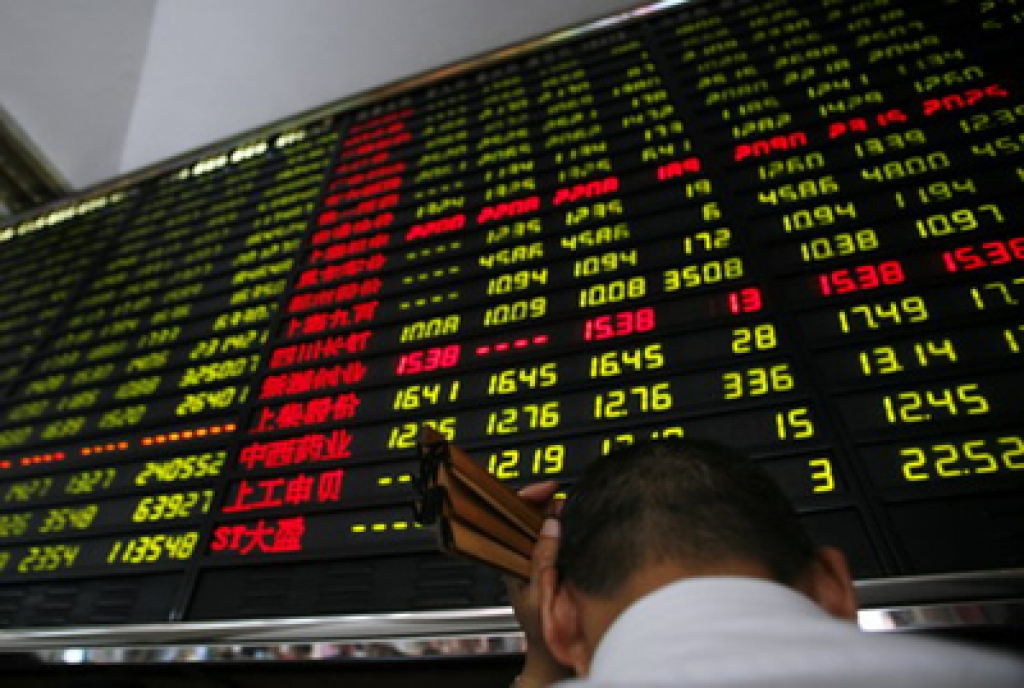 SHANGHAI/HONG KONG: Hong Kong and China stocks tumbled on Tuesday as a global market rout intensified, fueled by worries that a build in inflationary pressures will prompt major central banks to raise interest rates faster than expected.
SHANGHAI/HONG KONG: Hong Kong and China stocks tumbled on Tuesday as a global market rout intensified, fueled by worries that a build in inflationary pressures will prompt major central banks to raise interest rates faster than expected.
Hong Kong's benchmark Hang Seng Index plummeted 4.9 percent, on track for its biggest daily percentage drop since August, 2015. Hong Kong is particularly exposed to US rate moves because its currency is pegged to the US dollar.
The HSCE, an index tracking Hong Kong-listed Chinese firms, tumbled over 6 percent.
The market was little helped by a second-day of heavy bargain hunting from Chinese investors, who spent over 4 billion yuan $635.7 million) buying Hong Kong stocks during the morning session.
In China, both the Shanghai Composite Index and the blue-chip CSI300 Index fell more than 3 percent, as did start-up board ChiNext, which touched its lowest level in three years. Chinese markets had bucked the global downdraft on Tuesday.
A fresh wave of Chinese companies suspended trading in their shares to avoid margin calls, with investors also spooked by China's intensified crackdown on shadow banking.
Albert Xu, Hong Kong-based strategist at Zhongtai International Securities Limited, said investors had been too complacent and that a correction in global equities was long over-due.
"A sharp correction at such a high level is a normal thing," Xu said.
China's main indexes had climbed 5-6 percent in January, while the Hang Seng rose 10 percent and the HSCE surged over 14 percent.
Reflecting surging investor anxiety, the HSI Volatility Index which has been climbing this year, surged to the highest level since June 2016.
Stocks fell across the board in Hong Kong, with China's biggest lenders and insurers such as ICBC, Bank of China, China Life and Ping An slumping over 6 percent.
Still, some investors believe the slump is a good buying opportunity.
"Overall valuations in Hong Kong stock market are still relatively low, so it will attract fund inflows that hope to buy at the bottom after a short-term adjustment," Yang Delong, managing director at First Seafront Fund.
"The downside for Hong Kong stocks is smaller than for the US market and after this round of adjustment, Hong Kong stock market is likely to regain momentum."
CHINA MARKET
Still, losses in China's indexes were generally more subdued than those in rest of Asia, partly due to Beijing's strict capital controls, which help shield the market from global volatility.
But small-caps, which last week suffered their biggest weekly loss in a year, continued to underperform blue chips, as the threat of margin calls mounts.
On Monday, over 50 companies announced share suspensions as a growing number of companies took measures to avoid forced liquidation.
According to an estimate by Sinolink Securities, as of Jan 31, 1,066 cases of margin calls had been triggered, involving shares in 608 listed firms, and the list will grow if prices fall further.






















Comments
Comments are closed.